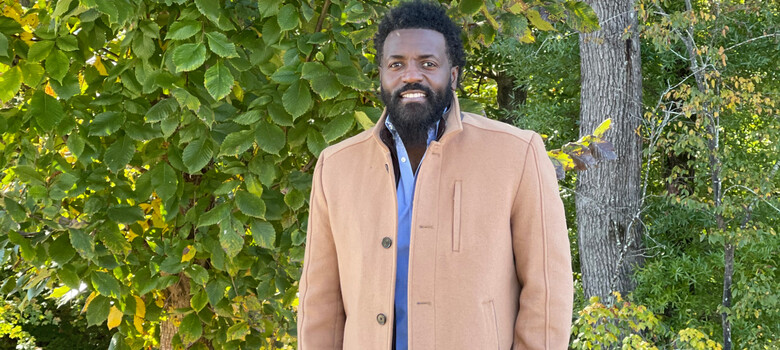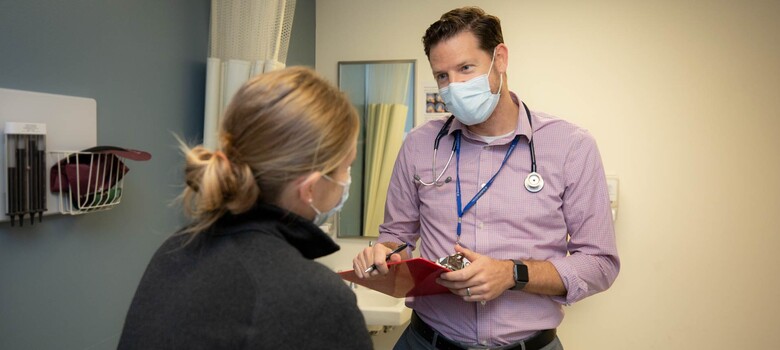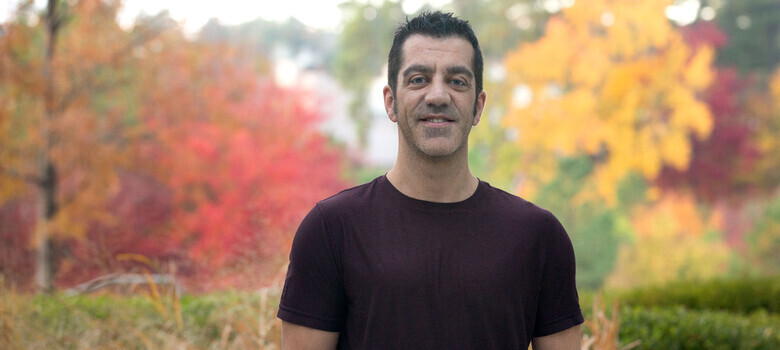 From the DukeHealth.org archives. Content may be out of date.
From the DukeHealth.org archives. Content may be out of date.
Duke Surgeons First in U.S. to Place New-Generation Artificial Heart
The Procedure, Followed by Heart Transplant, Saves Man’s Life

A surgical team at Duke University Hospital successfully implanted a new-generation artificial heart.
For the first time in the U.S., heart surgeons at Duke University Hospital successfully implanted a new-generation artificial heart as part of a clinical trial studying whether the device may be an alternative to or a way to buy time while waiting for a heart transplant. The recipient underwent successful heart transplant surgery four months later and is doing well.
At the Right Place at the Right Time
Matthew Moore of Shallotte, NC was diagnosed with life-threatening heart failure in the summer of 2021 at 39 years old. Moore’s condition deteriorated so fast that a heart transplant was considered too risky. Fortunately, Moore was at Duke, one of only three centers in the U.S. participating in a clinical trial studying a new kind of implantable artificial heart, developed by CARMAT.
Duke heart transplant surgeon Jacob Schroder, MD, discussed the clinical trial with Moore and his wife Rachel. “I felt like this is what we needed to do to keep Matthew here for me and also for our three-year-old son,” said Rachel, a trained cardiothoracic nurse. The device was implanted in July 2021. Four months later, Moore underwent a successful heart transplant.
Expanding Options for People Who Need Heart Transplants
“Because of the shortages of donor hearts, many patients are not eligible for this scarce resource or die while waiting for a heart transplant,” said Schroder, who led the team that performed the procedure. “We are hopeful for new options to help patients like Mr. Moore who have devastating disease and cannot otherwise be considered for a transplant.”
The clinical trial continues to study the device, which pumps blood through the heart’s two ventricles, and its potential. The hope is that it improves upon existing ventricular assist devices, which only pump blood through one ventricle, as well as previous types of artificial hearts.
Duke Heart Program Dedicated to High-Quality, Innovative Patient Care
“The Duke Heart Transplant Program is globally recognized not only for its robust clinical volume, but more importantly, providing outstanding quality and innovative patient care at the highest level possible,” said Edward Chen, MD, chief of the Division of Cardiovascular and Thoracic Surgery. “The successful implant of the CARMAT artificial heart represents the latest in a long list of accomplishments by the Duke heart transplant team aimed at further expanding the treatment options available for patients with end-stage cardiac disease.”




